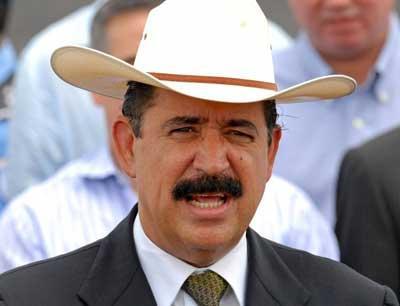I was one of those who supported the overthrow of Zelaya, because in my opinion he was leading us to a dictatorship, and he had to be stopped before it was too late.
However, I do not share the radicalism expressed by some of the more radical members of the group of “Whiteys” (blanquitos).
“Whitey” (blanquito) is a somewhat derogatory term used to identify those who supported the Micheletti regime after the overthrow of Zelaya. The name “Whiteys” came from the rallies in which Micheletti supporters dressed in white.
The organization called the Civic Democratic Union (UCD) arose spontaneously in response to the the “fourth ballot box” project that aimed to change the Political Constitution.
This organization has been weakened after the inauguration of President Lobo, since he has not followed the hard line of those that oppose Zelaya.
This shows that the UCD is more of a “reactionary” than a civic organization. The UCD has not submitted any proposal for the development of the country, and is only interested in going against the Zelaya group.
The most radical anti-Zelayistas opposed to the transfer of frequency of channel 8, saying it was an act of illegal expropriation by the government, which was shown to be false. This frequency was being used illegally by a private corporation, and is now in control of the Honduran State. El Heraldo newspaper made a strong campaign insisting on this lie, despite its slogan boasts of being “the truth in your hands.” By this time I stopped reading this newspaper regularly
El Heraldo newspaper has a strong anti-Zelaya bias. I’m not a supporter of Zelaya, but I don’t agree with the distortion of the news only to favor the anti-Zelaya group.
El Heraldo does not waste the opportunity to call “ex military coupster” to Hugo Chavez, when most of the time this is not relevant to the news article.
Some of the most radical Whiteys have talked about the convenience of a coup against President Lobo, for the alleged expropriation of channel 8, and other Lobo’s actions.
Whiteys are opposed to dialogue with the Zelayista group. They maintain a vindictive attitude that does not benefit the country. It was through dialogue that the representatives of Zelaya signed on the Tegucigalpa-San Jose agreement, which allowed the U.S. recognition of the current Honduran authorities. If the radicals Whiteys had gotten their way this recognition would have been more difficult.
The attitude of Whiteys to prefer confrontation instead of dialogue would produce more mindless violence.
I support the initiative of President Lobo to talk with Hugo Chavez. Whiteys are shocked by this, because they believe he is some kind of devil’s incarnation. For my part I think we should negotiate with the devil if it’s necessary, and if Hugo Chavez now wants to cooperate with Honduras we should let him.
Whiteys are more Catholic than the Pope opposing Petrocaribe, when it was approved by Micheletti himself when he was president of the Congress.
It is true that Petrocaribe does not provide cheaper fuel, but it gives us the opportunity to delay payments with low interest rates, resulting in an excellent business for the country.
Whiteys criticize the alleged crimes of Zelaya, but turn a blind eye to corruption allegations in the Micheletti administration.
Whiteys harshly criticize teachers’ struggles, but are not interested in examining what is the origin of their claims. Whiteys speak as if the State had no responsibility for teachers’ protests.
Whiteys are opposed to innovative development projects, such as Charter Cities, this makes them look as reactionaries that oppose any change.
Whiteys embrace failed free-market theories, instilling the fear of Communism. Whiteys’ anti-Communism borders on the absurd. For my part I consider that a well understood Socialism is a beautiful hope for humanity.
